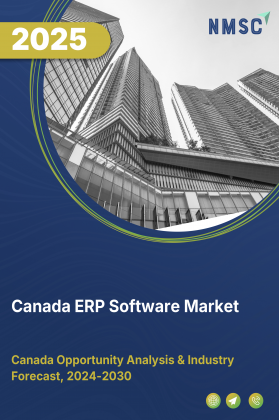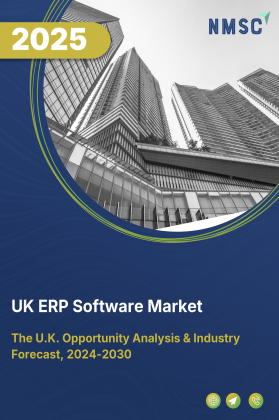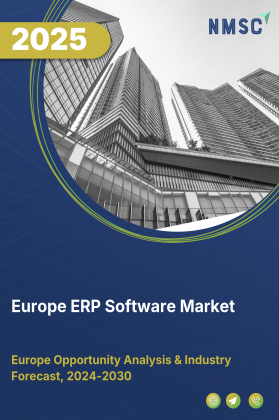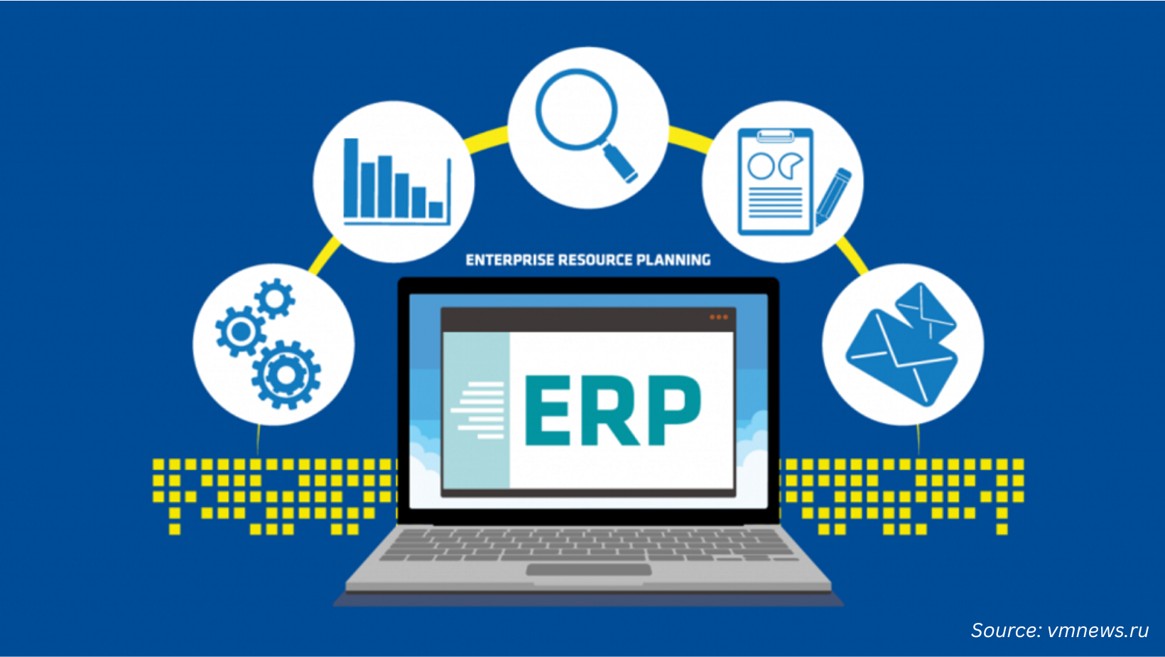
Canada ERP Software Market by Component (Software, and Services), Deployment (On-Premise, Cloud, and Hybrid), Business Function (Enterprise Asset Management, Financial Management, Human Capital Management, and Others), Application (Manufacturing, BFSI, Healthcare, Retail & Distribution, Government, IT & Telecom, and Others), and End Users (Small & Medium Enterprises, and Large Enterprises) – Trends and Forecast, 2025–2030.
Industry: ICT & Media | Publish Date: 16-Oct-2025 | No of Pages: N/A | No. of Tables: N/A | No. of Figures: N/A | Format: PDF | Report Code : IC3593
Industry Outlook
The Canada ERP Software Market size was valued at USD 7.06 billion in 2024 and is projected to grow to USD 8.17 billion by 2025. Additionally, the industry is expected to continue its growth trajectory, reaching USD 12.47 billion by 2030, with a CAGR of 8.82% from 2025 to 2030.
The Canada ERP software market demand is expanding rapidly, driven by strong government support and the growing need for digital transformation across sectors. E-commerce growth is a key driver, pushing businesses to adopt ERP systems for better inventory, logistics, and customer service management.
However, adoption is restrained by limited localized solutions and high customization costs, especially for SMEs facing integration challenges across provinces. Looking forward, the integration of IoT with ERP platforms presents a major opportunity, enabling real-time monitoring, predictive maintenance, and improved operational efficiency in manufacturing and logistics.
Government Initiatives Boost Market Growth
Canada holds the second-highest position in the regional ERP software market, with the highest growth rate share, largely due to proactive government support. Programs like the National Research Council of Canada Industrial Research Assistance Program (NRC IRAP) provide grants covering up to 80% of direct labour costs and 75% of subcontractor fees, up to USD 100,000, to ease ERP implementation.
Additionally, the Canada Small Business Financing Program (CSBFP) offers low-interest loans of up to USD 1.15 million, including USD 150,000 for ERP software and other intangible assets. These initiatives reduce financial hurdles for SMEs, accelerating digital transformation and boosting ERP system adoption across sectors.
Surge in E-Commerce Driving the Market Expansion
Canada’s retail and distribution sectors are experiencing rapid transformation, fuelled by the rise of e-commerce. As of 2022, over 27 million Canadians, about 75% of the population, were active online shoppers, a number expected to reach 77.6% by the end of 2025. This e-commerce boom is increasing the need for efficient ERP systems to manage inventory, logistics, and customer service.
ERP solutions offer real-time analytics and process automation, enabling retailers to optimize operations and meet rising consumer expectations for speed and reliability. This surge in digital commerce is a primary factor behind ERP adoption in Canada’s retail landscape.
Lack Of Localized Solutions and High Customization Needs Restrain ERP Adoption
Despite growth, Canadian businesses face challenges in adopting ERP systems due to the limited availability of solutions tailored to local tax codes and regulatory requirements. High customization demands and the complexity of aligning ERP systems with regional operational differences make integration difficult, especially across diverse provinces.
Additionally, many firms lack sufficient resources for system setup and staff training, further slowing adoption. These limitations hinder uniform ERP rollout and add complexity for companies seeking scalable solutions in the Canadian market.
IoT Integration Enhances ERP Capabilities, Unlocking New Market Opportunities
The integration of Internet of Things (IoT) technology with ERP systems is emerging as a significant growth driver, enabling real-time data visibility and advanced operational control. IoT-enabled ERP platforms empower businesses to track inventory, monitor equipment health, and predict maintenance needs, greatly enhancing efficiency in sectors such as manufacturing and logistics.
In March 2025, Epicor Software Corporation launched Epicor Kinetic 2025, a next-generation ERP solution designed with advanced IoT integration to enable real-time monitoring and predictive maintenance in manufacturing environments. This innovation illustrates the transformative power of IoT in expanding ERP capabilities and emphasizes the rising demand for intelligent, connected enterprise solutions.
Competitive Landscape
The market players operating in the Canada ERP software industry include SAP SE, Microsoft Corporation, Oracle NetSuite, Sage Group plc, Workday, Inc., Xero Limited, Epicor Software Corporation, Deltek, Inc., Aptean, SYSPRO, Acumatica, Inc., Infor, Unit4, Ramco Systems, Rockwell Automation and others.
Canada ERP Software Market Key Segments
By Component
-
Software
-
Service
By Deployment
-
On Premise
-
Cloud
-
Hybrid
By Business Function
-
Enterprise Asset Management (EAM)
-
Record Assets (Asset Mgmt)
-
Analytics & BI
-
Disposal of Assets
-
Others
-
-
Financial Management System
-
Core Financials
-
Corporate Performance Mgmt (CPM)
-
Financial Consolidation
-
Others
-
-
Human Capital Management (HCM)
-
Talent Management
-
Administrative HR
-
Workforce Management
-
Others
-
-
Manufacturing and Operations
-
Production Planning and Scheduling Products
-
Production Ops and Control Products
-
Manufacturing Information Mgmt Products
-
Others
-
-
Supply Chain Management (SCM)
-
Inventory management
-
Warehouse management
-
Transportation management
-
Procurement
-
Contract Management
-
-
Others
By Application
-
Manufacturing
-
BFSI
-
Healthcare
-
Retail & Distribution
-
Government
-
IT & Telecom
-
Construction
-
Aerospace & Defense
-
Other Industries
By End Users
-
Small and Medium-Sized Enterprise
-
Large Enterprise
Key Players
-
Microsoft Corporation
-
Oracle NetSuite
-
Sage Group plc
-
Xero Limited
-
Epicor Software Corporation
-
Deltek, Inc.
-
Aptean
-
SYSPRO
-
Acumatica, Inc.
-
Infor
-
Unit4
-
Ramco Systems
-
Rockwell Automation
Report Scope and Segmentation:
|
Parameters |
Details |
|
Market Size in 2025 |
USD 8.17 Billion |
|
Revenue Forecast in 2030 |
USD 12.47 Billion |
|
Growth Rate |
CAGR of 8.82% from 2025 to 2030 |
|
Analysis Period |
2024–2030 |
|
Base Year Considered |
2024 |
|
Forecast Period |
2025–2030 |
|
Market Size Estimation |
Billion (USD) |
|
Growth Factors |
|
|
Companies Profiled |
15 |
|
Market Share |
Available for 10 companies |
|
Customization Scope |
Free customization (equivalent up to 80 working hours of analysts) after purchase. Addition or alteration to country, regional, and segment scope. |
|
Pricing and Purchase Options |
Avail customized purchase options to meet your exact research needs. |

















 Speak to Our Analyst
Speak to Our Analyst

























